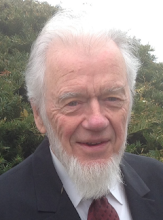Recently I learned about the adage called Hanlon’s Razor: “Never attribute to malice that which is adequately explained by stupidity.”
The
author of an article who cited those words wrote that he knows “lots of MAGA
Christians but his efforts to understand ‘why’ they honor Trump have been
futile. Since he has failed to find other reasons, he thinks that perhaps it
must, indeed, be either because of malice or stupidity.
However, I don’t agree that it must be one or the other of those two choices.
As
most of you know well, I am not a MAGA Republican supporter. But I
think that to attribute the reason that many Christians do support Trump and
the MAGA movement as being due either to malice or stupidity is too harsh and
inaccurate.
What
can we say, then, about why there are so many MAGA Christians who do support
Trump? That was an issue that Thinking Friend Jerry Jumper wrote/asked about in
an email I received from him last month, and many others of you likely puzzle
over that same question.
What
could it be other than malice or stupidity? Several other reasons
are feasible. and I think that the percentage of people who vote for Trump
because of malice or stupidity is markedly smaller than those who did and will
vote for Trump for other reasons.
Here
are five reasons that might explain why many self-identified
Christians have voted for Trump and are likely to do so again this fall, and
this list is not exhaustive:
◈ Nostalgia.
Many people who remember the 1950s—and still live in rural communities that
fondly recall then as the “good old days” with an esteemed Republican
President—wish that the U.S. could be like it was then. Thus, they are drawn to
the Make America Great Again slogan.
◈ Fear.
Closely related to the above is the fear of things changing for the worse. Nostalgic
people often fear the loss of cherished values of the past. There is a close
connection between religious and political conservatism, and one subsection of
my book on fundamentalism is titled “The Fear Factor.”*1
◈ Consistency.
Some voters say they’ve always been (or ever since Reagan have been) a
Republican, so naturally they vote for the Republican candidate. This was the
sort of response June got from close relatives when she asked why they voted
for Trump in 2016.
◈ Disinformation.
Many people get misleading/erroneous information from “news” sources such as
Fox News, “talk radio,” and publications such as Epoch Times.*2
Last week I listened to the former some each evening—and was amazed at how their
“news” differed from the “mainstream” media.*3
◈ Misinterpretation.
Influential conservative evangelical Christians such as Pastor Robert Jeffress
(First Baptist Church, Dallas), Ralph Reed (Faith and Freedom Coalition), and Franklin
Graham (Samaritan’s Purse), among many others, have fostered misinterpretation
of what the Bible says, or doesn’t say, about abortion, gay rights, etc.
Many
people who support Trump for the above reasons may, indeed, lack sufficient
understanding and/or information. But that doesn’t mean they are stupid. And while
such reasons may trigger malicious actions by some, surely those who are MAGA
supporters because of malice are few.
So,
we who are steadfast opponents of Trump and MAGA Republicans need to beware of fostering
arrogant, condescending, and/or belittling attitudes toward people we disagree
with politically. Neighbor-love must be extended to them also, and that
includes not labeling them as being either malicious or stupid.
Even
the leaders of the Christian Right who for decades have sought to change this
country into a theocracy, as vividly portrayed in Bad Faith, the new
(2024) documentary about “Christian nationalism,” were certainly not stupid nor
acting out of malice from their (mistaken) point of view.*4
But
make no mistake about it: seeking to understand and being friendly toward MAGA
Christians definitely doesn’t mean agreeing with their misguided views or
minimizing the danger lurking under their unwise support of a wholly unworthy
candidate for President.
_____
*1
Fed Up with
Fundamentalism: A Historical, Theological, and Personal Appraisal of Christian
Fundamentalism
(2007, 2020), pp. 100~103.
*2 Here is the link to an informative, and rather
long, article about The Epoch Times.
*3 One evening last week, the top
story at 8 p.m. was the campus unrest at Columbia University and elsewhere.
Repeatedly they were referred to as “pro-Hamas” activities. The next morning
the mainstream websites invariably called that unrest “pro-Palestinian.” That
is a marked difference.
*4
This film traces
the development of the Christian Right in the U.S. from the early 1970s to the
present. June and I rented it from Amazon Prime and watched it last Friday
evening. We thought it was a helpful film, fairly done but clear in showing the
ongoing threat of Christian nationalism that seeks to overthrow USAmerican
democracy. I highly recommend the viewing of, and sharing information about, that
fine documentary.









